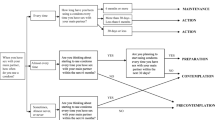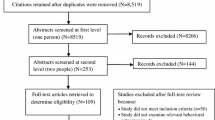Abstract
In preparation for the development of an individually tailored, multimedia, computerized sexually transmitted infection (STI)/HIV-risk reduction intervention software application for use in publicly funded STI clinics, we conducted a waiting-room survey among 583 inner-city patients (67% male; 79% African American; mean age = 30.3) at an STI clinic in Milwaukee, Wisconsin regarding their computer experience and opinions related to a computerized approach to HIV/STI-risk reduction counseling. A substantial minority of respondents indicated they would prefer having either a combined computerized and human counseling intervention (30%) or preferred a computerized intervention alone (13%). Perceived benefits of computerized counseling included impartiality of the response, privacy, accuracy of the information, convenience, and being able to control the dissemination of information. Perceived disadvantages included lack of human contact, inability to obtain necessary information, technical problems, threats to privacy, and failure to take information from a computer seriously. Despite their limited economic resources, participants reported relatively high levels of computer experience overall and a willingness to use an individually tailored computerized risk-reduction counseling approach. We discuss how participants’ responses were used to inform the development of such an intervention.
Similar content being viewed by others
References
Bolt, D., & Crawford, R. (2000). Digital divide: Computers and our childrens’ future. New York: TV Books.
Durantini, M. R., Albarracin, D., Mitchell, A. L., Earl, A. N., & Gillette, J. C. (2006). Conceptualizing the influence of social agents of behavior change: A meta-analysis of the effectiveness of HIV-prevention interventionists for different groups. Psychological Bulletin, 132, 212–248.
Kalichman, S. C., Weinhardt, L. S., Benotsch, E., Rompa, D., DiFonzo, K., Luke, W., Simpson, D., Kyomugrsha, F., & Austin, J. (2002). Internet access and internet use for health information among people living with HIV-AIDS. Patient Education and Counseling, 46, 109–116.
Lewis, D. (1999). Computer-based approaches to patient education: A review of the literature. Journal of the American Medical Informatics Association, 6, 272–282.
Revere, D., & Dunbar, P. J. (2001). Review of computer generated outpatient health behavior interventions: Clinical encounters “in absentia”. Journal of the American Medical Informatics Association, 8, 62–79.
Ruiter, R. A. C., Kessels, L. T. E., Jansma, B. M., & Brug, J. (2006). Increased attention for computer-tailored health communications: An event-related potential study. Health Psychology, 25, 300–306.
Scholes, D., McBride, C. M., Grothaus, L., Civic, D., Ichikawa, L. E., Fish, L. J., & Yarnall, K. S. H. (2003). A tailored minimal self-help intervention to promote condom use in young women: Results from a randomized trial. AIDS, 17, 1547–1556.
Author information
Authors and Affiliations
Corresponding author
Rights and permissions
About this article
Cite this article
Weinhardt, L.S., Mosack, K.E. & Swain, G.R. Development of a Computer-based Risk-reduction Counseling Intervention: Acceptability and Preferences Among Low-income Patients at an Urban Sexually Transmitted Infection Clinic. AIDS Behav 11, 549–556 (2007). https://doi.org/10.1007/s10461-006-9163-x
Received:
Accepted:
Published:
Issue Date:
DOI: https://doi.org/10.1007/s10461-006-9163-x




